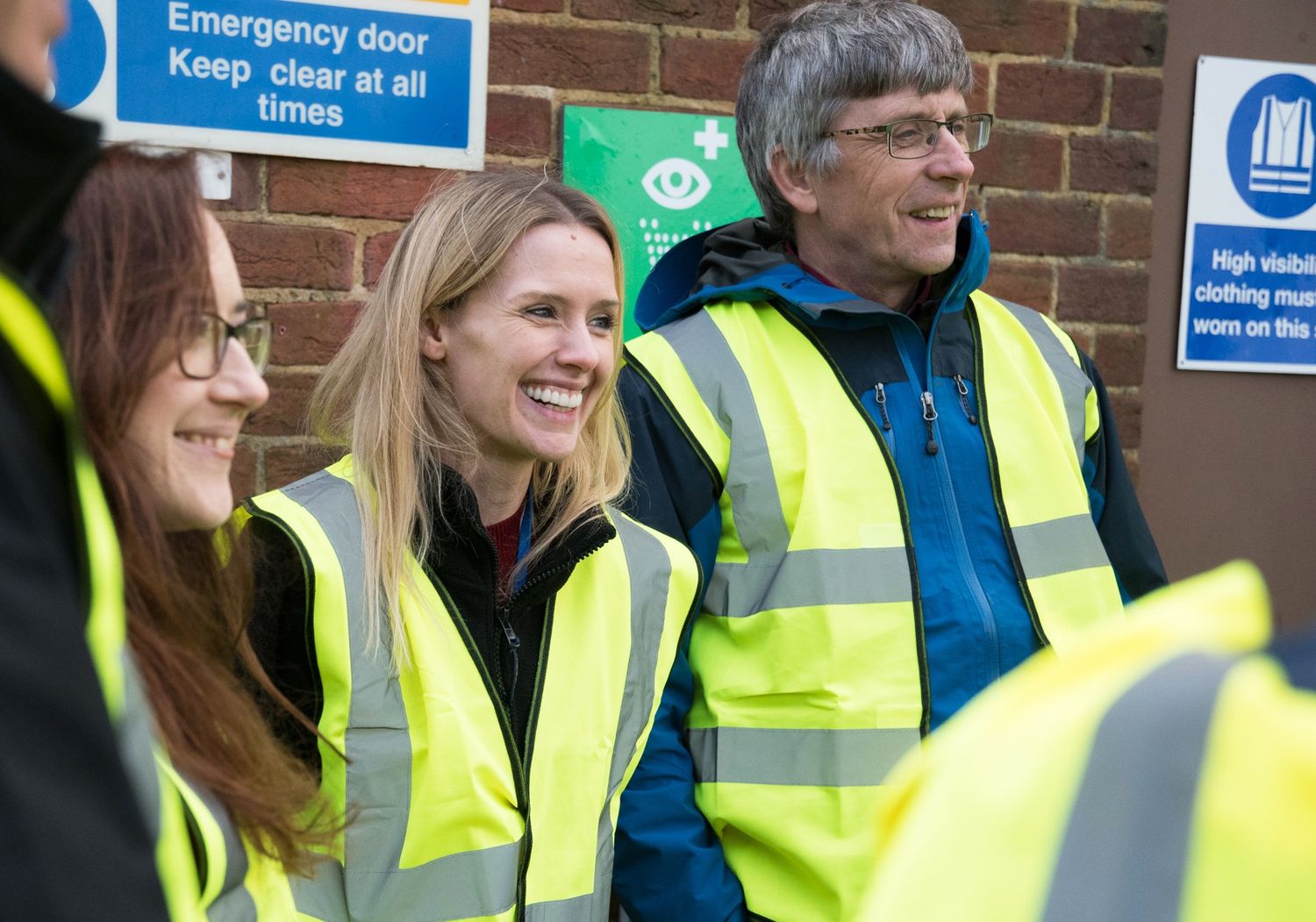We’re always striving to innovate and improve the work we do at South East Water, which is why we're thrilled to be awarded funding as part of Ofwat's inaugural Innovation in Water Challenge.
Our winning project called CatchmentLIFE will enable us to work in collaboration with other organisations across the industry to help protect wildlife and habitats across the UK. Here we spoke to our lead on the project and Groundwater Manager, Debbie Wilkinson about why innovation is important to her and how the scheme will make a difference to our environment.

What is your role at South East Water and how long have you worked for the company?
My role at South East Water is Groundwater Manager for the Environment Team. I'm responsible for both the Restoring Sustainable Abstraction and Groundwater Catchment Management elements of the Water Industry National Environment Programme (WINEP) and I co-manage the Catchment Team. I've worked for the company for over 11 years and I first started working here back in January 2010 as Water Quality Scientist for the Water Quality Department. I've since worked in the Water Resource Team as a Water Resource Planner and more recently in the Environment Team as the National Environment and Restoring Sustainable Abstraction Investigations and Groundwater Catchment Management Lead.
How did you get into your career?
At A-levels I studied Geology and really enjoyed it. I followed through to undertake a MGeol (BSc plus Masters) in Geology at Plymouth University. After four years of study I received a Pass with Distinction in MGeol. I then started looking for a job and went up to Aberdeen to look into a career in the oil industry out in the North Sea. I was flown in a small chartered aircraft up to Aberdeen and given champagne on the way up there! After some consideration I decided it wasn’t the life for me, and decided to undertake another MSc in Hydrogeology at Leeds University, one of the universities at that time that specialised in Hydrogeology. I was one of only two females on the course as Hydrogeology is a male dominated discipline. I then came to work for South East Water not long after graduating in with an MSc in Hydrogeology.
Why is innovation important within the water industry?
Innovation is really important within the industry to work towards solutions to resolve future challenges and deliver more resilient, affordable, safe and environmentally sustainable water supplies. These challenges could be climate change, water quality deterioration, population growth and demand from different sectors and ensuring enough water is left to support the environment. Innovation is not only new technologies such as new treatment processes but new ways of working, new ideas and new processes to move forwards.
Where did the idea for the Catchment LIFE project come from and what is the purpose of the project?
We're working in partnership with the River Restoration Centre (RRC) for developing options for river restoration and habitat enhancement on three of our Adaptive Management schemes (schemes on our WINEP). For one of these schemes (Maidenhead Ditch Adaptive Management) we have ecological targets agreed with our Regulator, the Environment Agency, to increase the diversity of macro-invertebrate communities (i.e. aquatic ecology). For many of our catchments we know what the pressures are that are causing ecological failure (e.g. sedimentation, water quality, modified waterbodies, flow) but it’s not easy to find the information as to how these pressures impact individual ecological species and what can be done. CatchmentLIFE will identify the needs at species level (or ecological communities of interest e.g. macro-invertebrates, brown trout etc.) and how the water environment can be adapted to help these species thrive. Through the CatchmentLIFE project we will build, with a group of experts, a bespoke Decision Support Software describing pressures and impacts on species and ecological communities. It will be widely accessible, with a simple spatial interface and useable by experts and non-experts such as citizen science groups and volunteers.
How will Catchment LIFE have a positive impact on our environment and our customers?
Many UK waterbodies are failing to achieve Water Framework Directive (WFD) targets (only 14% of rivers are meeting Good Ecological Status) and the outcomes of the CatchmentLIFE project will have a positive impact to our environment by understanding species needs and what could be done to protect ecology and improve WFD status of waterbodies. This will allow for greater collaboration between different sectors and the public, ultimately driving mutually beneficial outcomes for our customers and the communities they live in. The citizen science element of the project will positively re-connect our customers back to their environment, with the potential of changing perceptions to the value of water, leading to reduced demand and water efficiency, and creating community cohesion to collaborate locally and build their skills (e.g. IT or ecologic training) through the project.
Ofwat's Innovation in Water Challenge may now be closed, but it's second competition funded through the Ofwat Innovation Fund, The Water Breakthrough Challenge, is officially open for entries! You have until Thursday 3 June to submit your innovative collaborative initiatives for a chance to win up to £10 million in funding.
Share this Article: